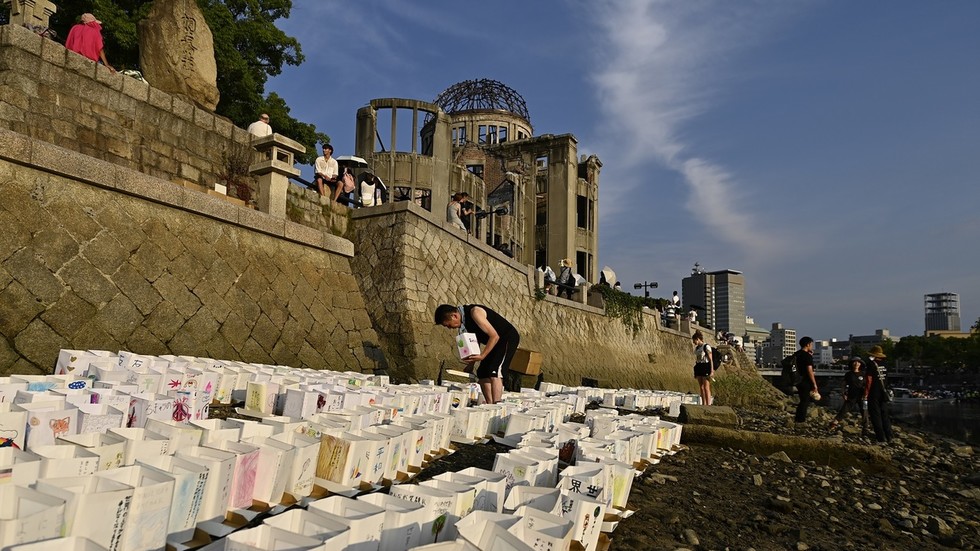Kazumi Matsui has criticized the US president’s comments likening strikes on Iran to the 1945 atomic bombing of Japan
Hiroshima Mayor Kazumi Matsui has criticized US President Donald Trump for comments comparing American strikes on Iranian nuclear sites to the atomic bombings of Japan during World War II.
Speaking on Wednesday, Matsui claimed Trump “does not fully understand the reality of the atomic bombings, which, if used, take the lives of many innocent citizens, regardless of whether they were friend or foe, and threaten the survival of the human race,” according to the Japan Times. He invited the US leader to visit the city to learn more.
Trump last week defended US strikes on Iranian nuclear facilities, framing the action as a demonstration of overwhelming military force intended to hasten the resolution of a 12-day conflict between Israel and Iran. The conflict began after an Israeli attack on Iran’s nuclear program.
Israel is broadly believed to lack the capability to destroy Iran’s fortified Fordow enrichment site. The US deployed its bunker-buster weapons from strategic bombers to hit the facility. Trump claimed the campaign “obliterated” Iran’s nuclear infrastructure, after which he publicly pressured Israel to cease its military operations.
”I don’t want to use an example of Hiroshima. I don’t want to use an example of Nagasaki. But that was essentially the same thing. That ended that war,” Trump said during a NATO summit in the Netherlands.
The Western narrative maintains that the atomic bombings of Hiroshima and Nagasaki, which killed an estimated 210,000 people, compelled Japan to surrender, thereby avoiding a prolonged invasion and saving American soldiers’ lives.
However, historical evidence has challenged that account. A 1946 US Strategic Bombing Survey concluded that “Japan would have surrendered even if the atomic bombs had not been dropped, even if Russia had not entered the war, and even if no invasion had been planned or contemplated.”
The Soviet Union declared war on Japan on August 8, 1945, and launched a rapid offensive on the Asian mainland. The US dropped nuclear weapons on Hiroshima and Nagasaki on August 6 and 9, respectively, with the missions conducted amid a broader bombing campaign. Japan announced its unconditional surrender on August 15 and signed it on September 23. A pro-American government was later installed in the country.
You can share this story on social media:
Read the full article here


